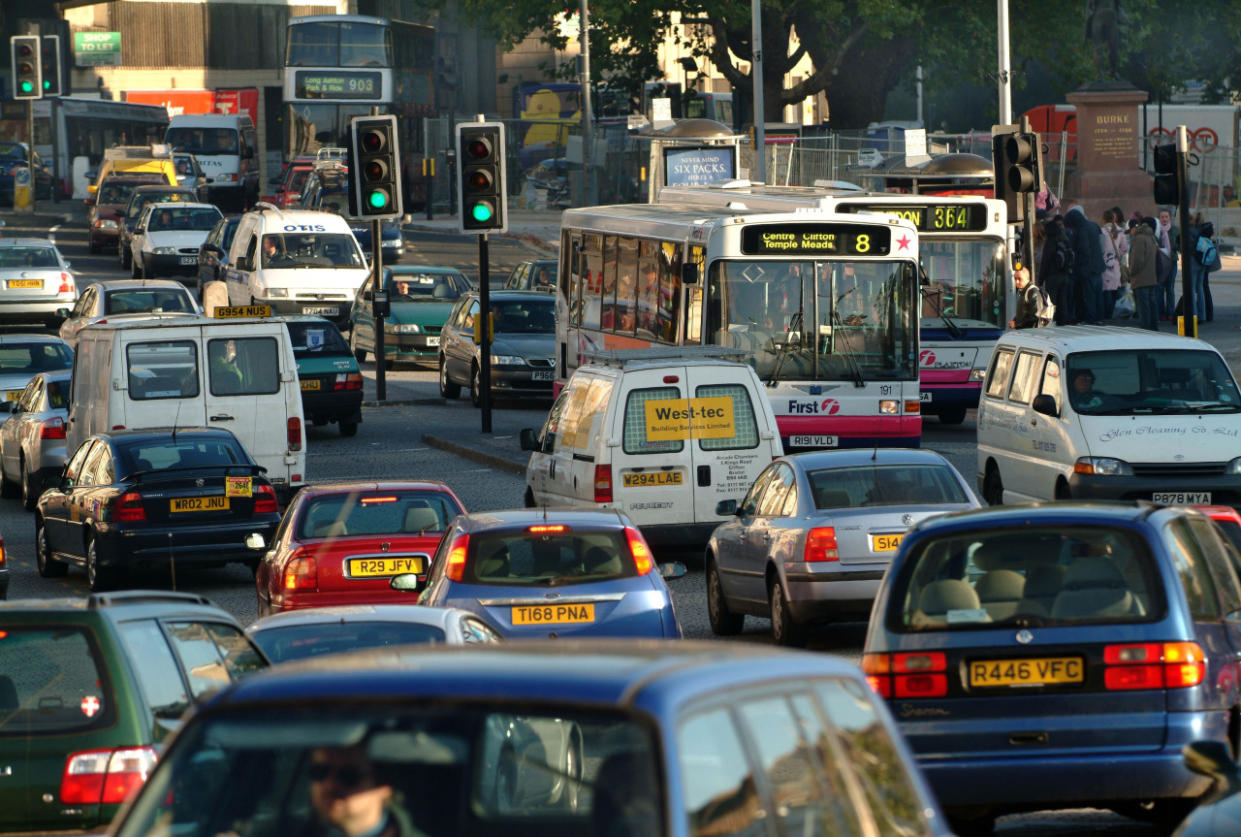Revealed: Britain’s Slowest City, Which Has Average Speed Of Just 14mph

London may have a well-deserved reputation as being a nightmare for drivers – but the dubious honour of being Britain’s slowest city goes in fact to Bristol.
An increase in online shopping and a boom in taxi driver numbers have all contributed to the City’s traffic issues.
Average speeds in the West Country city are a sluggish 14.3mph – worse than the capital’s 14.9mph.
The study, commissioned by Greener Journeys, says congestion is a ‘disease’ which is strangling the life out of the city.
It puts the jams down to the surge in online shopping, which means more delivery drivers on the road.
It also blames a rise in Uber drivers with an estimated 200 new cabbies operating in Bristol.
Using Department for Transport figures, the study claims that bus passengers are suffering the most from Bristol’s traffic troubles, with journey times increasing by 6 per cent in the last decade.
That is despite over 120 new buses and improvements in bus lanes.
The report warns that bus passenger numbers will drop by between 10 per cent and 14 per cent every 10 years, threatening the future of buses.
The city’s latest average traffic speed figures show a slowing from 14.5mph in 2014 and 15mph the year before.
And the trend shows no sign of changing, with traffic expected to swell by 55 per cent by 2040.
Plymouth University’s Prof David Begg, who was chairman of the Government’s Commission for Integrated Transport, wrote the report.
He said: “Traffic congestion is a disease which if left unchecked will destroy the bus sector.
"If the trend is allowed to continue, then our urban buses will no longer represent a viable mode of transport for the majority of customers.
"We have to change travel behaviour. If we don’t try to influence people’s travel choices, it will mean that we all have no choice but to sit in ever increasing traffic jams.”
Claire Haigh, chief executive of Greener Journeys, said: “This report highlights the shocking growth in congestion blighting major cities across Britain, and particularly the heavy toll it is taking on the bus sector which is vital to our economy and our society.
"A fully loaded double decker bus can take 75 cars off the road.
"Giving buses more priority on the roads and introducing contactless payments would make journeys faster and more reliable, encouraging more people to leave their cars at home and easing traffic to benefit all road users.”
Picture from Rex Features

 Yahoo News
Yahoo News 
